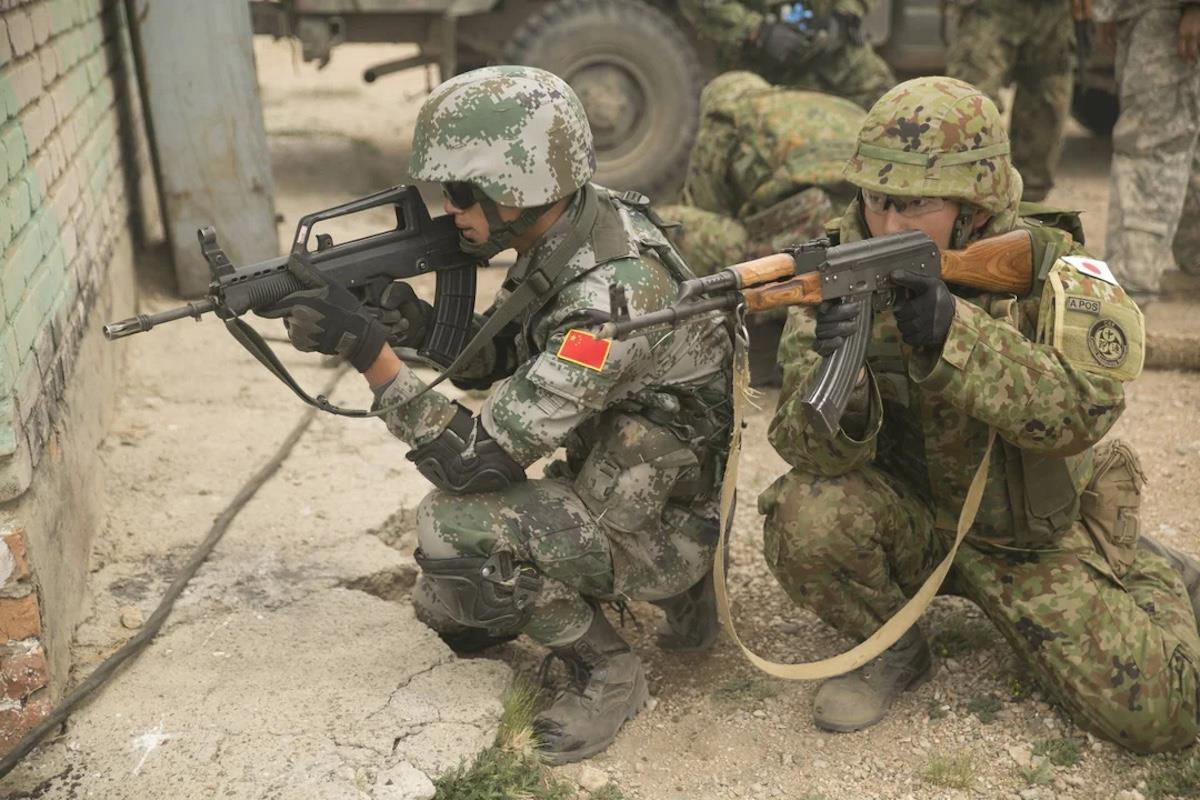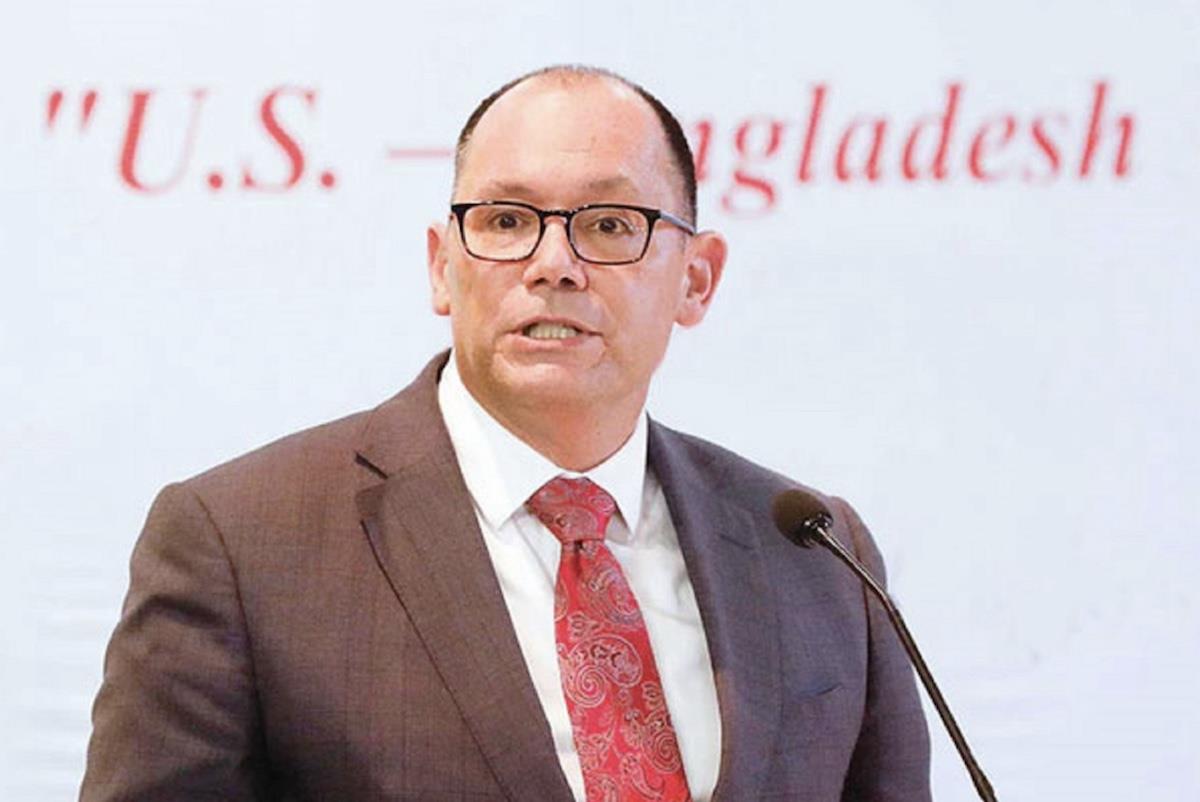
Bangladesh: Where A US Ambo Can Still Captivate A Nation
The idea of a foreign diplomat wielding significant influence in a democratic nation of 180 million might seem odd, even for a certain period. But Bangladesh's history of political instability has created openings for external actors to intervene, exert their power and shape the country's direction in many ways.
This uncomfortable reality first dawned on me during a casual conversation with a respected senior journalist, someone I viewed as a mentor. Over tea and biscuits, he dropped a truth bomb:“Faisal,” he said,“remember, in Bangladesh, only three persons truly hold sway: the Prime Minister, the Indian High Commissioner and the US Ambassador.”
Years later, as my reporting expanded from business and infrastructure to encompass the broader political landscape, I realized the profound wisdom in his words. They were undeniably true.
Consider the time leading up to Bangladesh's January 2024 national election. For more than a year, the US Ambassador's every move was monitored and scrutinized here by a captivated nation. Haas became a constant presence in news headlines, even for seemingly mundane events like a family trip to neighboring India .
On talk shows and YouTube channels run by exiled Bangladeshis and popular analysts, Ambassador Haas was elevated to a messianic figure. People hoped he could intervene and prevent Bangladesh's descent into an authoritarian state.
The expectation was that he could somehow restore voting rights and a functional electoral system, allowing Bangladesh to experience true democracy – a concept the US, under the Biden administration, champions globally.
Haas a household nameWell, that expectation on Haas wasn't exactly unfounded. He arrived in Bangladesh in March 2022, following the US placing sanctions on the Rapid Action Battalion (RAB) and seven of its top former officials just three months prior.
RAB, a Bangladeshi paramilitary unit, faced accusations of severe human rights abuses including extrajudicial killings and disappearances targeting critics and political opponents of Prime Minister Sheikh Hasina, who for the past one and a half decades has been ruling the South Asian nation with an unprecedented iron grip.
Since his arrival, Ambassador Haas had hit the ground running in Bangladesh, prioritizing meetings with human rights groups and major political parties . His frequent press appearances emphasizing the importance of free, fair and inclusive elections have been widely reported.

Sasakawa keeping China-Japan military lines open

US opens door for China advances in the Pacific

Squad ditches Quad to keep US heat on China
Many analysts believed his statements signaled a shift in US policy. They saw it as a move away from viewing Bangladesh solely through the lens of India , a perception held during the past few years.
Buoyed by the perceived backing of the US, the opposition Bangladesh Nationalist Party (BNP) gained renewed momentum. Even though it was battered by numerous politically motivated legal cases against its members, the party organized large rallies nationwide.
Ordinary Bangladeshis, having endured two disputed elections with limited voting rights, anticipated a fairer outcome in the upcoming vote.
The anticipation became stronger when the US announced a new visa policy for Bangladesh in late March last year. That policy mentioned that the US would restrict its visas for those found to interfere with the voting process. The announcement had a significant impact on Bangladeshi society.
This is because the US has long been a top destination for Bangladeshis seeking educational or employment opportunities. It's also widely understood in Bangladesh that the US has significant influence over the country's relationships with other global powers, including the European Union, UK, Canada and Australia.
As a result, a US visa restriction could make it more difficult to obtain visas from these countries as well.
The broad nature of the US visa policy fueled all sorts of speculation and rumors . YouTube channels run by Bangladeshi activists in exile, popular due to a restricted domestic media landscape, published unsubstantiated lists of politicians allegedly targeted.
These lists spread virally online and through everyday conversations, with people whispering about potential US intervention to end the long-ruling Awami League government.
With the new visa policy, US Ambassador Haas became a central figure in discussions about what the opposition parties called“restoring democracy” in Bangladesh.
Seen as an embodiment of a potential US intervention, his popularity skyrocketed. This was humorously captured by BNP leader Golam Maola Rony, who remarked on a TV talk show that they had“god in the sky and Haas on earth” to protect them from government repression.
The surge of popularity of not only Haas but the US broadly in the national psyche had reached such an extent that when Israel started conducting its disproportionate offensive against Palestinians in retaliation for Hamas's attack, public criticism against the US remained almost non-existent, even among Islamic political entities.
This was unprecedented, as in previous cases when anything happened in Palestine, Bangladeshi people were seen rallying against the US government, knowing that without the backing of the US, Israel would be left in the lurch in the Middle East.
Reality bites backIn mid-November, Bangladesh's Election Commission declared the January 7 poll schedule. BNP's demand of holding the election under a neutral caretaker government – a system which the country's High Court had abolished – wasn't heeded.
The party was thus adamant about sitting out the election based on its experience at the previous polls, where it secured just seven out of 300 seats in what was widely seen as a highly rigged contest. It was certain that no free and fair poll could be conducted under a partisan government.
The country saw a period of unrest as street protests by the BNP and its allies intensified. These protests were met with increased police action and legal cases.
Coinciding with this political tension, the vital readymade garment (RMG) sector, responsible for over 80% of the country's export earnings, was shaken by demonstrations demanding a minimum wage increase. Tragically, some workers lost their lives during these protests.
Adding to the anxieties, the US announced a new polic , the“Memorandum on Advancing Worker Empowerment, Rights, and High Labour Standards Globally.” This policy empowered the US to impose sanctions, trade penalties and visa restrictions on countries violating labor rights. Many in Bangladesh interpreted this as a potential threat of broad economic sanctions targeting the RMG sector.
During that tense period, US Ambassador Haas's actions became a constant source of national attention. Every move by the US embassy and ambassador was intensely analyzed, sparking speculation and a flurry of unsubstantiated stories.
Social media and even major news outlets fueled the fire by churning out unsubstantiated rumors. The scrutiny reached such a peak that some national newspapers made headlines out of Ambassador Haas's family vacation to India before Christmas, twisting it into a speculative story.

Sign up for one of our free newsletters
- The Daily ReportStart your day right with Asia Times' top stories AT Weekly ReportA weekly roundup of Asia Times' most-read stories
While the outcome of the January 7 election was a foregone conclusion from the onset due to the main opposition party's boycott, the US's reactions were something that all political parties as well as common people highly anticipated.
The US released an official statement within a day of the results criticizing the election's fairness while expressing concern about the arrests of opposition members. At the same time, it also emphasized the US“commitment to continued partnership with Bangladesh.”
This partnership, the US said, focuses on“promoting a free and open Indo-Pacific region, supporting human rights and civil society in Bangladesh and strengthening people-to-people and economic ties.”
Begrudging acceptanceAwami League politicians interpreted the lack of a US or other international intervention as a begrudging acceptance of the election results by the Western world. The opposition eventually grasped the same reality: there wouldn't be a US-led push to remove the Awami League government.
Finally, after months of online activism and commentary, most analysts and activists were forced to accept the new political landscape in the old setting. Some political pundits and analysts, however, are still dissecting the US's moves and trying to make a sense out of its Bangladesh policy.
Should it adopt a tougher approach to incentivize democratic reforms or take a more conciliatory stance? Will it completely abandon its values-based approach in favor of a purely interest-driven strategy, or attempt to find a middle ground that balances both principles?
Nowadays, the common people's intense interest in the US, its foreign policy toward Bangladesh and especially the American ambassador has all faded. Ambassador Haas, likely without meaning to, became a focal point for hundreds of millions of Bangladeshis for a while.
Many saw him as the embodiment of the US's supposed focus on values in its dealings with Bangladesh. With his coming departure and the lack of US-motivated change, that will most likely have ended.
Faisal Mahmud is a Dhaka-based journalist.
Thank you for registering!
An account was already registered with this email. Please check your inbox for an authentication link.

Legal Disclaimer:
MENAFN provides the
information “as is” without warranty of any kind. We do not accept
any responsibility or liability for the accuracy, content, images,
videos, licenses, completeness, legality, or reliability of the information
contained in this article. If you have any complaints or copyright
issues related to this article, kindly contact the provider above.


















Comments
No comment